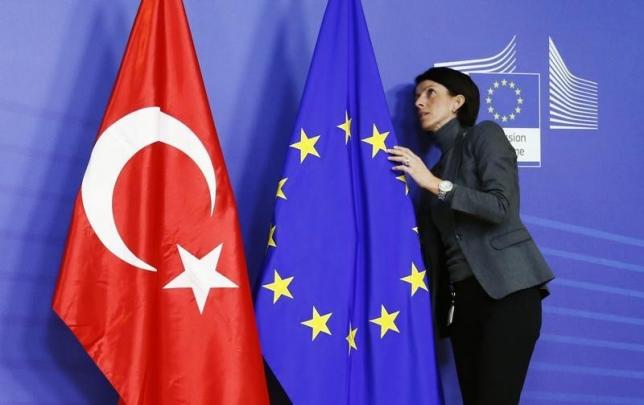The 24-25 June European Council meeting will once again shift its focus to Turkey and to establishing a so-called “positive agenda” (though the discussion will not likely be exhausted).
This time Ankara’s posture will be somewhat different than it was at the summit last March, when the issue of Turkey was last discussed, or last October when the EU announced its “positive agenda” designed to prod Turkey to change it behaviour.
There is also a different geopolitical environment after the restoration of the relationship with the US following US President Joe Biden’s trip to Europe and the NATO summit in Brussels.
In December, 2020, the European Council meeting stressed the need to coordinate the EU’s positions with the US as regards Turkey.
It appears that the desired coordination has been achieved. The communique issued at the EU-US summit notes that both sides look forward to a mutually beneficial cooperation with a democratic Turkey.
This sybillic reference to “a democratic Turkey” leaves room for interpretation, as columnist Michalis Mitsos wrote in Ta Nea on 17 June).
Judging by the Erdogan-Biden talks, however, the US appears prepared to reach a modus vivendi with today’s Turkey.
For its part, the EU is pushing “in a gradual manner” its positive agenda (updating of the Customs Union, etc.) aiming, intera alia, at speeding up changes Ankara must undertake on many levels (rule of law, respect for international law, etc.).
Brussels notes with interest that Turkey’s cycle of neo-Ottoman overstretch appears to be coming to an end for various reasons.
Firstly, that is because Joe Biden’s presence in the White House has radically changed geopolitical conditions.
Secondly, Ankara’s over-stretching did not offer Turkey substantial positive results but instead it created problems at the economic and other levels.
The end of Turkey over-extending itself does not mean that Erdogan has abandoned his strategic objectives in the Aegean, in the Eastern Mediterranean, and in Turkey’s immediate vicinity.
The view that everything Erdogan has been doing recently “constitutes exclusively a tactical retreat” but that his strategy remains unchanged is unrealistic.
Erdogan is restructuring his strategy and is adapting his foreign policy.
In that framework, Erdogan may not want third parties to intervene in Greek-Turkish relations.
That is at root a correct position. Solutions to problems do not come from “outside”. They will result from the political will and actions of the two countries.
Yet, Erdogan must understand that Greece and the EU are not just any third party.
Greece is a member of the European Union. It is a member of its broader political system and so an intervention by the EU cannot be considered as the act of a third country.
Formally, the EU cannot be formally considered a third party in the way that it is for Russia, China, and even the US.
That is because Turkey is an associated member of the EU and formally a candidate-country.
For the same reason, for the EU Turkey is not on the list of third countries.
Greece can legitimately move to Europeanise its neighbour’s foreign policy and exploit the related talks by setting institutional conditionalities.
Athens University Emeritus European Affairs Professor Panagiotis Ioakeimidis is a former ambassador-advisor at the Greek Foreign Ministry and a member of the advisory committee at FEPS


![Πλειστηριασμοί: Τι ακίνητα «χτύπησε» το e-σφυρί [πίνακες]](https://www.tovima.gr/wp-content/uploads/2026/01/15/pleistiriasmoi-90x90.webp)

